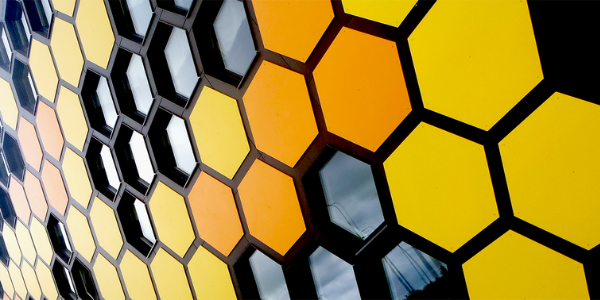For plinth and facade finishes, an economical and practical solution is TEMPSI cement-bonded particle boards containing wood chips, cement, water, and hydration additives. TEMPSI offers painted or stone-coated facade finishing panels.
Performance
The finishing material is used for exterior work and also for interior work, mainly in ventilated facades and building plinths. The fire resistance class of the coloured panel is A2-s1, d0, so building regulations allow unlimited use. No wet work, which means that installation can be carried out all year round, with a variety of looks and solutions. The thermal insulation is always dry and works as efficiently as possible, as the air traction between the facade panel and the insulation prevents moisture build-up. TEMPSI has a 5-year visual warranty, during which the panels are replaced if the problem is due to an industrial defect, such as increased fading. The technical guarantee is 15 years and the material lifetime is 50 years. Panels are produced in large format – 1250mm x 3350mm, but sizes can be customised to meet customer needs. The coloured panel or TEMPSI Colore can be customised to the desired colour, TEMPSI Granito is coated with natural stones has 13 shades. Painted facades can fade, whereas stone-clad facades are more mechanically resistant and not subject to bleaching. During operation, the ventilated facades are maintenance-free, except for cleaning and inspection once a year.
Assembly technique
The finishing of the plinth is greatly simplified compared to wet plaster by gluing the boards directly to the thermal insulation material or wooden beams. EPDM insulation tape is applied to the joints and fixed to the plinth with adhesive foam. The slabs shall be inserted into the ground, resolving the junction at turf level, connecting to the pavement or other material. The cost is 15% lower than with decorative plaster. The industrial production of the cladding panels ensures a lower risk of damage due to frost cycles compared to other cladding materials. When fixing to walls, the cantilevered guides are placed on which the TEMPSI panels are mounted, the plane can be adjusted and, if the walls are not straight, the facade can be levelled. Usually the plates are fixed with rivets or screws, but recently screws have been used more and more, because the panels are easy to change and maintain afterwards, cannot be screwed with a screwdriver, and the panels must be able to move. In practice, this means that the effect of the linear expansion coefficient is reduced when bolting at multiple points, as the panel is “split” at the bolting points. If the panel is 3 metres long and the bolts are in the middle, the expansion length will only be 1.5 m. Installation technology must be observed, a larger diameter pre-drill hole is required to prevent the risk of cracking, bolts must not be overtightened. Can be mounted on wood or metal guides, EPDM tape should be used on vertical guides to prevent sliding, reduce cold bridging and in the case of timber frames, prevent moisture from the wood entering the trim board which can cause increased fading. Facades need to be reinforced with stainless steel fasteners, there are cases where builders put cheap plasterboard screws and after a year the whole facade starts to leak and rust.
Significant benefits
With ventilated facade systems, you can save on the type of insulation by installing normal stone wool in the first layer; if the facade is technically damaged, it is easy to remove the tiles and replace them. Structural surveys are facilitated and LED lighting and communications can be installed in the wind layer. A ventilated façade absorbs sound much better as it is reflected against the façade panel and the sound wave is then shortened between the façade cladding and the thermal insulation. In summer, you can save up to 30 percent on air-conditioning costs, as only the top layer of the facade heats up, not the whole wall. TEMPSI was installed in Riga Maternity Hospital, where there were problems with ensuring a comfortable temperature for pregnant women in the facility; by installing a ventilated facade system, the existing air-conditioning system’s capacity became sufficient to control the temperature. TEMPSI panels have also been used in the construction of the new Daugava Stadium extension (Riga), New Teika (Riga), apartment building renovation projects, etc. In the private housing segment, plinth finishing boards are in high demand.
